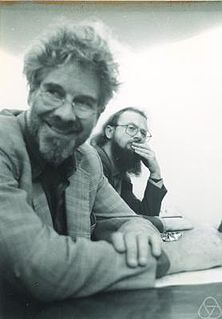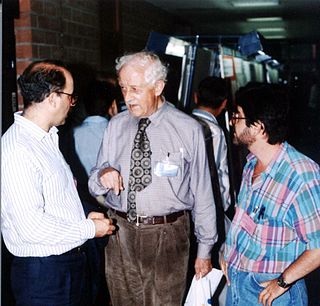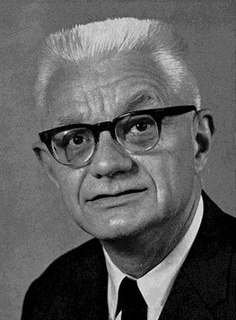A Quote by Christopher Zeeman
Mathematics is not arithmetic. Though mathematics may have arisen from the practices of counting and measuring it really deals with logical reasoning in which theorems-general and specific statements-can be deduced from the starting assumptions. It is, perhaps, the purest and most rigorous of intellectual activities, and is often thought of as queen of the sciences.
Related Quotes
If you ask ... the man in the street ... the human significance of mathematics, the answer of the world will be, that mathematics has given mankind a metrical and computatory art essential to the effective conduct of daily life, that mathematics admits of countless applications in engineering and the natural sciences, and finally that mathematics is a most excellent instrumentality for giving mental discipline... [A mathematician will add] that mathematics is the exact science, the science of exact thought or of rigorous thinking.
Mystery is an inescapable ingredient of mathematics. Mathematics is full of unanswered questions, which far outnumber known theorems and results. It's the nature of mathematics to pose more problems than it can solve. Indeed, mathematics itself may be built on small islands of truth comprising the pieces of mathematics that can be validated by relatively short proofs. All else is speculation.
When the mathematician says that such and such a proposition is true of one thing, it may be interesting, and it is surely safe. But when he tries to extend his proposition to everything, though it is much more interesting, it is also much more dangerous. In the transition from one to all, from the specific to the general, mathematics has made its greatest progress, and suffered its most serious setbacks, of which the logical paradoxes constitute the most important part. For, if mathematics is to advance securely and confidently, it must first set its affairs in order at home.
There have been many authorities who have asserted that the basis of science lies in counting or measuring, i.e. in the use of mathematics. Neither counting nor measuring can however be the most fundamental processes in our study of the material universe-before you can do either to any purpose you must first select what you propose to count or measure, which presupposes a classification.
What exactly is mathematics? Many have tried but nobody has
really succeeded in defining mathematics; it is always something
else. Roughly speaking, people know that it deals with numbers,
figures, with relations, operations, and that its formal procedures
involving axioms, proofs, lemmas, theorems have not changed
since the time of Archimedes.
As soon as a thought or word becomes a tool, one can dispense with actually 'thinking' it, that is, with going through the logical acts involved in verbal formulation of it. As has been pointed out, often and correctly, the advantage of mathematics - the model of all neo-positivistic thinking - lies in just this 'intellectual economy.' Complicated logical operations are carried out without actual performance of the intellectual acts upon which the mathematical and logical symbols are based. ... Reason ... becomes a fetish, a magic entity that is accepted rather than intellectually experienced.
Mathematics has two faces: it is the rigorous science of Euclid, but it is also something else. Mathematics presented in the Euclidean way appears as a systematic, deductive science; but mathematics in the making appears as an experimental, inductive science. Both aspects are as old as the science of mathematics itself.
The branches of mathematics are as various as the sciences to which they belong, and each subject of physical enquiry has its appropriate mathematics. In every form of material manifestation, there is a corresponding form of human thought, so that the human mind is as wide in its range of thought as the physical universe in which it thinks.
There is no thing as a man who does not create mathematics and yet is a fine mathematics teacher. Textbooks, course material-these do not approach in importance the communication of what mathematics is really about, of where it is going, and of where it currently stands with respect to the specific branch of it being taught. What really matters is the communication of the spirit of mathematics. It is a spirit that is active rather than contemplative-a spirit of disciplined search for adventures of the intellect. Only as adventurer can really tell of adventures.




































